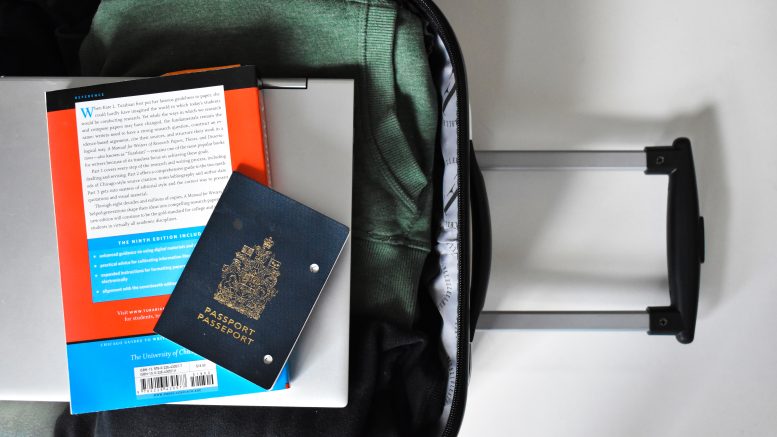Applications for the U of M’s student exchange program are set to open on Dec. 1.
Until Jan. 31, 2023, students will have the opportunity to apply for the student exchange program taking place in the summer and fall terms of 2023, as well as the winter and summer terms of 2024.
The program allows students to travel elsewhere for their studies while earning credits towards their degree at the U of M.
Students can study in places such as Costa Rica, Japan, Australia, Singapore, France and the United Kingdom. They will have the option of going on exchange for one semester or for the entire year.
The U of M is partnered with 50 institutions around the globe in over 20 different destinations.
Naomi Fujiwara, the student exchange co-ordinator at the U of M, outlined that students need a GPA of 3.0 or above, must be in at least their second year and have completed at least 30 credit hours as some of the requirements to participate in the student exchange program.
Fujiwara also emphasized that students interested in an exchange must “demonstrate their strong personal, professional and academic goals.”
Additionally, students will also need to show that they can adjust to living and studying in a foreign country while presenting a reputable image as students of the U of M.
Some other requirements include being registered in a faculty other than university 1 by the time their exchange begins, maintaining full-time student status while abroad and presenting evidence of proficiency in a language other than English if it is relevant to their planned studies.
Fujiwara mentioned that international students are also eligible for the program.
The program’s costs can vary depending on the duration of the exchange, where the student is going and whether the person going on exchange is a domestic or international student.
“One thing students should know for sure is that for the exchange program, students pay their tuition fees to their home institution,” she said, explaining that domestic and international students would still pay their respective tuition rates when studying abroad.
Fujiwara encouraged students to take electives while on exchange, and not just courses specific to their major or minor.
She explained that while this program is for academic purposes, it is also a chance for students to “get out of Manitoba and get the different experiences that they can’t get while they are still here.”
“As much as I want them to do well in academic studies, I also want them to have the time to immerse themselves in the culture they want to,” she said.
Fujiwara explained that this program is beneficial to both a student’s academic and personal development.
“With this exchange, it’s not just about studying overseas and travelling, but [it] also contributes to your personal growth,” she said.
Chimdinma Chijioke, a fourth-year international student at the U of M majoring in political studies, offered some insight into the program.
Chijioke went on exchange to Hungary for a six-credit-hour course that lasted about three weeks.
She explained that the course was similar to the U of M in terms of grading scale.
“That was easier on my end, to understand how the assignments were going to go and how the grades were going to translate,” she said.
Chijioke stated that her experience was academic, but also culturally immersive.
“We learnt a bit of Hungarian language, we tried some of the foods, we tried some traditional crafts and outfits,” she said.
“We also got to go onto many tours, and visited lots of significant places in Hungary.”
Chijioke said she thinks that this program would be beneficial to any student who would like to take a class they are interested in, but be a tourist at the same time.
“Going on exchange was really special, and I’m glad that I had that opportunity,” she said.
More information about the student exchange program can be found on the University of Manitoba’s website.


